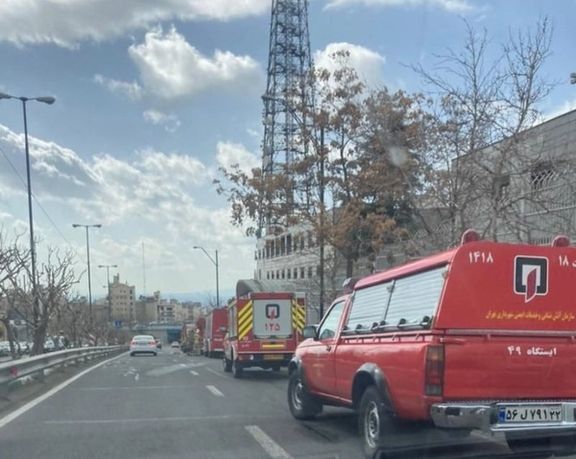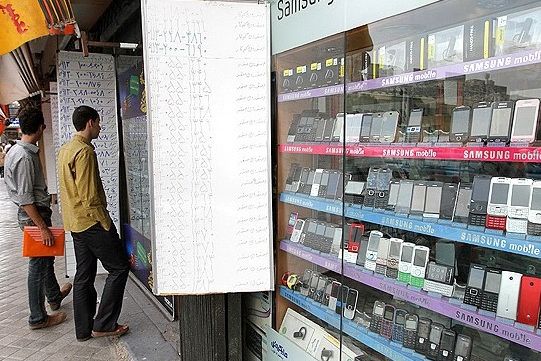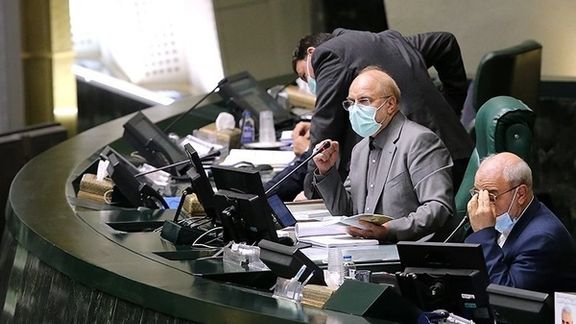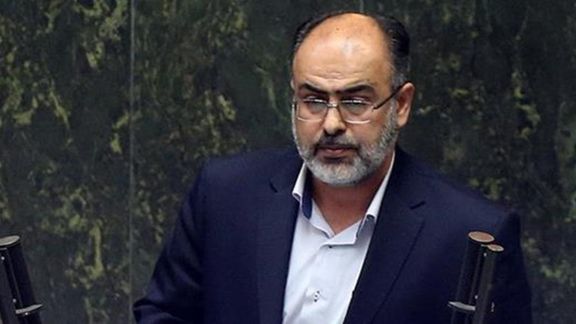Child Bride Sets Herself On Fire in Iran Due To Spousal Abuse

A teenage girl who was a victim of child marriage set herself on fire in southeastern Iran due to "domestic violence" and “lack of support by her own family”.

A teenage girl who was a victim of child marriage set herself on fire in southeastern Iran due to "domestic violence" and “lack of support by her own family”.
The 17-year-old girl, who was identified as F. Marandegani, killed herself on Wednesday in the Bampur County in the Sistan and Baluchistan province, a website for local Baluch activists reported.
The report said she was physically and mentally abused and her husband frequently beat her.
This is the second case of self-immolation of a Baluch child bride in the past few months.
The campaign of Baluch activists reported a similar case in December. The self-immolation victim was 16 years old and was also harassed by her spouse.
In February, a 17-year-old wife and mother of a three-year-old, Mona Heydari, was beheaded by her husband in a case of 'honor killing'.
According to figures published by Iran Statistical Center (ISC), child marriage is rising in Iran, with 9,750 girls aged 10-14 officially wed in a three-month period.
Another report said that the numbers published by ISC reflected only registered marriages and not unregistered ones, which are common in rural areas.
In the Islamic law (or Sharia), the minimum age of marriage for girls is 13 and for boys 15.

United States President Joe Biden Friday extended for a year a 1995 executive order declaring a “national emergency” with regard to “the government of Iran.”
The ‘emergency’ gives the president powers to circumvent usual judicial and administrative procedures, including imposing sanctions and seizing assets. A similar order was used in February to impound Afghanistan’s $7 billion foreign reserves.
Biden specifically extended Executive Order 12957, declared by President Bill Clinton March 15, 1995, which was aimed originally at stopping a deal between Iran and Conoco. On May 6, 1995, Clinton issued another executive order, imposing wider sanctions on Iran, and the ‘emergency’ has been maintained ever since.
The White House statement Friday referred to the “actions and policies of the Government of Iran — including its proliferation and development of missiles and other asymmetric and conventional weapons capabilities, its network and campaign of regional aggression, its support for terrorist groups, and the malign activities of the Islamic Revolutionary Guard Corps and its surrogates.”
The statement, signed by Biden, claimed Iran continued “to pose an unusual and extraordinary threat to the national security, foreign policy, and economy of the United States.”
The renewal of the ‘national emergency’ might sour but will not stop efforts in Vienna to renew the 2015 Iran nuclear deal, the Joint Comprehensive Plan of Action (JCPOA). The US ‘emergency’ was in place throughout previous negotiations leading to the deal in 2015.

Internet services on mobile phones and landlines were disrupted Friday morning in the Iranian capital Tehran and the nearby city of Karaj.
According to reports on social meida, many websites are not available via all internet service providers (ISPs) of the country. Most news websites are not even available from abroad.
Unconfirmed reports in social media say the reason is a fire at the Telecommunication Infrastructure Company.
Some social media users who are not living in Tehran or Karaj also say their internet is down.
The public relations manager of the Ministry of Communications and Information Technology, Mehdi Salem, told IRNA that the disruption was caused by a problem in one of the data centers (LCT) in Tehran. He did not say what the nature of the problem was.
He added the problem was resolved after about an hour, but despite this statement service remained largely unavailable.
On Thursday, a report by the Iran’s state-run news agency IRNA said the internet penetration rate has surpassed 122 percent in the country.
The government blocks thousands of websites and top social media apps in abid to control the flow of information.
Iranians were outraged last week when a group of 18 hardliners in a parliament committee claimed that they had ratified a bill to further restrict internet and social media access.
Some people reacted to the disruption by blaming the authorities, saying the outage was a trial run for the plan to restrict internet and social media, which hardliners are pushing for.

Saudi Arabia plans to continue "detailed talks" with its rival Iran to reach a satisfactory agreement for both, Crown Prince Mohammed Bin Salman has said.
He also reiterated Riyadh’s view for a strong nuclear deal between Tehran and world powers at talks in Vienna, concerned about both Tehran’s nuclear ambitions and its regional aggression.
He said in remarks to The Atlantic carried by Saudi state media on Thursday that direct talks with Iran would enable reaching "a good situation and mark a bright future" for the region's Sunni Muslim and Shi'ite powers, which have been locked in a rivalry playing out in conflicts across the Middle East.
"Iran is a neighbor forever, we cannot get rid of them, and they cannot get rid of us," the Saudi state news agency cited him as saying.
Saudi Arabia supported former US president Donald Trump’s decision to withdraw from the Obama-era nuclear agreement known as JCPOA and favored his tough policy toward Tehran.
In September 2019 after Trump had fully sanctioned Iran’s oil exports, a large missile and drone attack hit Saudi oil installations in what was widely believed to have been an Iranian operation.
Riyadh had to navigate a delicate diplomatic terrain after Joe Biden became president with a clear agenda to restore the JCPOA and give less freedom of action to the kingdom. Biden removed a terror designation from Yemen’s Houthis early in his term.
Ben Salman’s comments come as indirect US-Iran talks in Vienna move closer to reviving a 2015 nuclear pact which curbed Tehran's nuclear program in exchange for sanctions relief.
Riyadh and its Gulf allies had seen the pact as flawed for not addressing their concerns over Iran's ballistic missiles program and network of proxies, including in Yemen where Saudi Arabia is embroiled in a costly war.
"We do not want to see a weak nuclear deal because the result will be the same in the end," the prince said.
Riyadh severed diplomatic ties with Tehran in 2016 after Iranian authorities allowed mobs to attack Saudi diplomatic mission, setting fire to its embassy. The two countries launched talks last year hosted by Iraq aimed at containing tensions, but no breakthrough was achieved.
Saudi Arabia's foreign minister said last month the kingdom was looking to schedule a fifth round of talks despite a "lack of substantive progress" so far and urged Tehran to change its behavior.
Shared concerns over Iran saw Riyadh's Gulf allies the United Arab Emirates and Bahrain forge ties with Israel in 2020 to create a new regional axis at a time of uncertainty over the commitment of key security ally the United States.
"We do not look at Israel as an enemy but as a potential ally in various interests that we could seek to achieve together. But it should solve its problems with the Palestinians," Prince Mohammed was cited as saying by the state news agency.
Saudi Arabia, home to Islam's two holiest sites, has conditioned any eventual normalization with Israel on addressing the Palestinians' quest for statehood on territory captured by Israel in the 1967 Middle East war.
With reporting by Reuters

Despite widespread censorship, a report by the Iran’s state-run news agency IRNA says the internet penetration rate has surpassed 122 percent in the country.
The agency said on Thursday that according to the latest data, the penetration rate of fixed and mobile broadband has exceeded 122 percent in total, mentioning the Covid-19 pandemic as one of the reasons for the increase.
That use of fixed broadband internet is about 13 percent of total as most of the growth took place in the mobile internet.
The number of Iranian mobile subscriptions has reached nearly 136 million, meaning that the penetration rate of mobile phones is more than 161 percent.
Iran has widely blocked websites and social media apps in the past two decades to restrict citizens’ access to information, but people use VPNs and other tools to circumvent the censorship.
According to social media management platform Hootsuite, the number of Global Internet users has already reached almost 5 billion as of 2021.
Datareportal’s statistics indicate that internet penetration in Iran stood at 70 percent in January 2020, while there were 58.42 million internet users. However, data by the World Bank said the use of the Internet by individuals was 84 percent in 2020.
Iranians were outraged last week when a group of 18 hardliners in a parliament committee claimed that they had ratified a bill to further restrict internet and social media access.

In a rare glitter of real journalism, news anchor Elmira Sharifi grilled a hardliner lawmaker for his attacks on those who oppose restrictions on social media.
Mehrdad Veis Karami, one of the 18 members of the Iranian parliament (Majles) who support a highly controversial bill to restrict social media access, called opponents "dogs on long leashes." The group of 18 hardliners last week claimed that they had ratified the bill in a committee and that there was no need to put the bill to vote by all the 290 lawmakers.
Later 167 Iranian members of parliament objected to the unlawful act and subsequently the parliament officially annulled the result of the voting. The bill is to be put to vote at the Majles later.
In the meantime, Karami started a campaign on social media against the opponents of the restrictive bill who in fact supported freedom of expression on social media. When critics lashed out at him, he said the "long leash" comment was a quote from a statement made by a former CIA chief. Iranian social media users quickly responded to remind him that no former or current CIA chief had made any such comment and suggested that the hardliner lawmaker do a google search before attributing fake statements to anyone.

In a telephone conversation with Karami on live TV, Ms. Elmira Sharifi questioned Karami's presence on Twitter, which is officially banned in Iran, leaving the hardliner speechless. She further told him that he has insulted millions of opponents of the restrictive bill. The lawmaker slightly changed his complacent tone and said that he was not talking about the nation and that he was criticizing the opponents of the bill at the Majles. But the news anchor did not take that either and accused Karami of insulting nearly 200 of his colleagues at the Majles.
Although Iran's state TV is strictly controlled by the government, still anchors at times criticize some parliament bills before they are approved and become laws. Nonetheless, not every news anchor is brave enough to challenge even low-key politicians such as most members of parliament.
On the other hand, grilling Karami appeared absolutely legitimate, considering that even some clerics had lashed out at him for the controversial comment and his support for a legislation that would restrict people's freedoms and hurt millions who use Western apps, such as Instagram for commerce. In a video posted on Twitter, Iranian cleric Vahid Heroabadi returned the insult to Karami.
Numerous Iranians on social media lashed out at Karami and he had to take back his comment in a series of tweets. Some of the comments about Karami's insulting tweets were made by hardliner users and supporters of the government. As an example, Farid Modarresi said Karami was a mad dog who attacked the people and accused him of making the people angry by spreading irrational statement.
Nonetheless, most of Karami's critics called on him to leave social media platforms that are officially banned in Iran because of restrictions he and his likeminded colleagues have imposed.Thousands of small businesses operate from social media platforms and many Iranians, including the children use social media to voice their ideas or to vent their frustration
Over 220 of Iran's 290 predominantly hardliner lawmakers have their own Twitter accounts and use them for messaging as they are not important enough to be quoted on traditional media outlets.